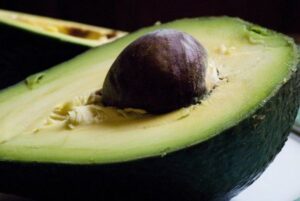The Good Fats You Should Be Eating

Fat is your friend. No, really. It’s true that some fats are nasty, cholesterol-raising blobs of evil, but others actually help fight illness—and keep your skin and hair glowing, at that. The key is to choose good fats from healthy, nutrient-rich sources. And I’m here to show you how to do just that.
Let’s get to the basics. Fat is first and foremost an energy source, and a tasty one at that. But your body also uses it for other purposes, like nutrient absorption. Dietary fat helps you process fat-soluble vitamins A, D, E and K, which are important for healthy bones, supple skin, blood clotting and possibly even cancer prevention.
The healthiest fats are monounsaturated and polyunsaturated fats. These reduce artery-clogging LDL cholesterol levels while increasing “good” HDL cholesterol in your blood. They also may have a positive influence on blood sugar levels to help keep Type 2 diabetes at bay, according to the MayoClinic.com.
The most potent sources of monounsaturated and polyunsaturated fats are vegetable oils, nuts, seeds and seafood. Pecans, almonds, and cashews are all terrific sources of monounsaturated fat, and also contain vitamin E and potassium. While most fruits and vegetables are very low in fat, olives and avocados both have monunsaturated fats as well. For polyunsaturated fat, turn to tofu and soymilk (just make sure it’s organic), sunflower seeds and fatty fish, all of which also provide protein. Olive, coconut and sunflower oils are rich in monounsaturated fat, while corn, soybean and safflower oils are go-tos for polyunsaturated fat.
But wait; let’s not forget about Omega-3s. A variety of polyunsaturated fat, Omega-3 fatty acids are emerging as heart-healthy superstars that could reduce the risk of coronary artery disease, and may even ease high blood pressure and irregular heartbeats. There is also evidence that Omega-3s could help boost memory, fight depression and ease arthritis. Salmon, anchovies and herring are rich in the stuff, and you can also get it from algae. Walnuts, flax, hemp and chia seeds also have high levels of Omega-3s.
Now that the good news is out, let’s talk about the fats worth avoiding: Saturated fats, found in animal products, have an unsavory reputation for spiking LDL cholesterol levels and contributing to diabetes. Even worse are trans fats, which are found in meats and cheeses but also synthesized into hydrogenated or partially hydrogenated oils. Watch out for these in baked goods and snacks.
Although unsaturated fats are fabulous for your health, they spell trouble for your figure if you overdo them. At nine calories per gram, fat has more than double the energy of protein, and two more calories per gram than alcohol. The U.S. Department of Agriculture recommends getting 20 to 35 percent of your total calories from fat, period. Less than 10 percent of total calories should come from saturated fats, and trans fats should make up no more than a single percent of your calories — none is even better.
image: threelayercake

